|
Books Should Be Free Loyal Books Free Public Domain Audiobooks & eBook Downloads |
|
|
Books Should Be Free Loyal Books Free Public Domain Audiobooks & eBook Downloads |
|
Religion |
|---|
|
Book type:
Sort by:
View by:
|
By: Thomas Henry Huxley (1825-1895) | |
|---|---|
 Lectures and Essays
Lectures and Essays
| |
By: Irving Bacheller (1859-1950) | |
|---|---|
 Vergilius A Tale of the Coming of Christ
Vergilius A Tale of the Coming of Christ
| |
By: Samuel Smiles (1812-1904) | |
|---|---|
 The Huguenots in France
The Huguenots in France
| |
By: Isabella M. Alden | |
|---|---|
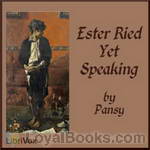 Ester Ried Yet Speaking
Ester Ried Yet Speaking
Authored by Isabella M. Alden under the pen name “Pansy.” Fourth in the Chautauqua Girls series. Alfred Ried (brother of Ester Ried from that series) wants to help the hundreds of poor street boys in his city to come to faith and improve their conditions, but is discouraged and overwhelmed with the task. Enter Flossy (Shipley) Roberts, a willing worker who focuses on 7 such boys and especially on one. | |
By: Ignatius Loyola Donnelly (1831-1901) | |
|---|---|
 Atlantis: The Antediluvian World
Atlantis: The Antediluvian World
"Atlantis: The Antediluvian World is a book published during 1882 by Minnesota populist politician Ignatius L. Donnelly, who was born in Philadelphia, Pennsylvania during 1831. Donnelly considered Plato's account of Atlantis as largely factual and attempted to establish that all known ancient civilizations were descended from this supposed lost land. Many of its theories are the source of many modern-day concepts we have about Atlantis, like the civilization and technology beyond its time, the origins of all present races and civilizations, a civil war between good and evil, etc." | |
By: John Lord (1810-1894) | |
|---|---|
 Beacon Lights of History, Vol 1: The Old Pagan Civilizations
Beacon Lights of History, Vol 1: The Old Pagan Civilizations
The first of 14 volumes, this book discusses ancient civilization looking primarily at religion and philosophy. | |
By: John Henry Newman (1801-1890) | |
|---|---|
 Apologia pro Vita Sua
Apologia pro Vita Sua
| |
 Loss and Gain The Story of a Convert
Loss and Gain The Story of a Convert
| |
 Parochial and Plain Sermons, Vol. VII (of 8)
Parochial and Plain Sermons, Vol. VII (of 8)
| |
 Parochial and Plain Sermons, Vol. VIII (of 8)
Parochial and Plain Sermons, Vol. VIII (of 8)
| |
By: Hélène A. Guerber (1859-1929) | |
|---|---|
 Myths of the Norsemen From the Eddas and Sagas
Myths of the Norsemen From the Eddas and Sagas
| |
By: Norman F. Langford | |
|---|---|
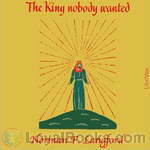 The King Nobody Wanted
The King Nobody Wanted
In a very real and interesting way, The King Nobody Wanted tells the story of Jesus. Where the actual words of the Bible are used, they are from the King James Version. But the greater part of the story is told in the words of every day. (Introduction by N. F. Langford) | |
By: Saint Augustine (354-430) | |
|---|---|
 The Confessions of St. Augustine
The Confessions of St. Augustine
| |
By: Gottfried Wilhelm Leibniz (1646-1716) | |
|---|---|
 Theodicy Essays on the Goodness of God, the Freedom of Man and the Origin of Evil
Theodicy Essays on the Goodness of God, the Freedom of Man and the Origin of Evil
| |
By: Saint Thomas Aquinas (1225-1274) | |
|---|---|
 Summa Theologica - 06 Pars Prima Secundae, On the Last End, On Human Acts
Summa Theologica - 06 Pars Prima Secundae, On the Last End, On Human Acts
The Summa Theologica (or the Summa Theologiae or simply the Summa, written between 1265–1274) is the most famous work of Thomas Aquinas, even though it was never finished. It was intended as a manual for beginners and a compilation of all of the main theological teachings of that time. It summarizes the reasoning for almost all points of Christian theology in the West, which, before the Protestant Reformation, subsisted solely in the Roman Catholic Church. The Summa's topics follow a cycle: the existence of God, God's creation, Man, Man's purpose, Christ, the Sacraments, and back to God... | |
 Summa Theologica - 12 Pars Secunda Secundae, Treatise on Gratuitous Graces and the States of Life
Summa Theologica - 12 Pars Secunda Secundae, Treatise on Gratuitous Graces and the States of Life
The Summa Theologica (or the Summa Theologiae or simply the Summa, written 1265–1274) is the most famous work of Thomas Aquinas (c. 1225–1274) although it was never finished. It was intended as a manual for beginners and a compilation of all of the main theological teachings of that time. It summarizes the reasoning for almost all points of Christian theology in the West, which, before the Protestant Reformation, subsisted solely in the Roman Catholic Church. The Summa's topics follow a cycle: the existence of God, God's creation, Man, Man's purpose, Christ, the Sacraments, and back to God... | |
By: Aquinas Thomas (1225?-1274) | |
|---|---|
 On Prayer and The Contemplative Life
On Prayer and The Contemplative Life
| |
By: Mayne Reid (1818-1883) | |
|---|---|
 The Flag of Distress A Story of the South Sea
The Flag of Distress A Story of the South Sea
| |
By: Ernest A. Wallis Budge (1857-1934) | |
|---|---|
 Legends of the Gods The Egyptian Texts, edited with Translations
Legends of the Gods The Egyptian Texts, edited with Translations
| |
 The Babylonian Legends of the Creation
The Babylonian Legends of the Creation
| |
By: The Gawain Poet | |
|---|---|
 Pearl
Pearl
Written in the 14th century by the Gawain poet, 'Pearl' is an elegiac poem reflecting on the death of a young daughter, pictured as a pearl lost in a garden. It is considered a masterpiece of Middle English verse, incorporating both the older tradition of alliterative poetry as well as rhyme, centered around the development of an intricately structured image. Sophie Jewett's translation from the Northern dialect of the original renders much of the poem's liveliness and beauty accessible to modern readers, whilst encouraging them to pursue their reading further, to read the original itself.This recording is dedicated to the memory of Pearl Jean Shearman, 1914-2012. | |
By: James Edward Talmage (1862-1933) | |
|---|---|
 Jesus the Christ A Study of the Messiah and His Mission According to Holy Scriptures Both Ancient and Modern
Jesus the Christ A Study of the Messiah and His Mission According to Holy Scriptures Both Ancient and Modern
| |
By: Elizabeth Stuart Phelps (1844-1911) | |
|---|---|
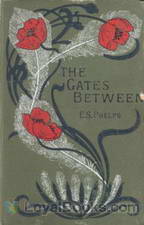 The Gates Between
The Gates Between
| |
By: Richard Francis Burton (1821-1890) | |
|---|---|
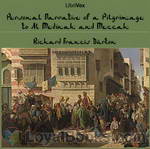 Personal Narrative of a Pilgrimage to Al-madinah and Meccah
Personal Narrative of a Pilgrimage to Al-madinah and Meccah
Sir Richard Francis Burton (1821 – 1890) was an English explorer, translator, writer, soldier, orientalist, ethnologist, linguist, poet, hypnotist, fencer and diplomat. He was known for his travels and explorations within Asia and Africa as well as his extraordinary knowledge of languages and cultures. According to one count, he spoke 29 European, Asian, and African languages.Burton's best-known achievements include traveling in disguise to Mecca, The Book of One Thousand Nights and A Night, an... | |
By: Peter H. Ditchfield (1854-1930) | |
|---|---|
 The Parish Clerk
The Parish Clerk
| |
By: Donald Alexander Mackenzie (1873-1936) | |
|---|---|
 Myths and Legends: Myths of Babylonia and Assyria
Myths and Legends: Myths of Babylonia and Assyria
Donald Alexander Mackenzie was a Scottish journalist and prolific writer on religion, mythology and anthropology in the early 20th century. His works included Indian Myth and Legend, Celtic Folklore and Myths of China and Japan.As well as writing books, articles and poems, he often gave lectures, and also broadcast talks on Celtic mythology.This volume deals with the myths and legends of Babylonia and Assyria, and as these reflect the civilization in which they developed, a historical narrative has been provided, beginning with the early Sumerian Age and concluding with the periods of the Persian and Grecian Empires... | |
By: Baron Paul Henri Thiry d'Holbach (1723-1789) | |
|---|---|
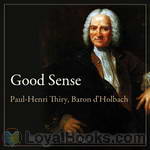 Good Sense
Good Sense
In 1770, Baron D'Holbach published his masterpiece, "Systeme de la Nature", which for a long time passed as the posthumous work of M. de Mirabaud. That text-book of "Atheistical Philosophy" caused a great sensation, and two years later, 1772, the Baron published this excellent abridgment of it, freed from arbitrary ideas; and by its clearness of expression, facility, and precision of style, rendered it most suitable for the average student. This text is based on an undated English translation of "Le Bon Sens" published c. 1900. The name of the translator was not stated. | |
By: Robert Hugh Benson (1871-1914) | |
|---|---|
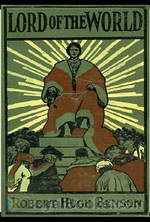 Lord of the World
Lord of the World
“Mr. Benson sees the world, four or five generations hence, free at last from all minor quarrels, and ranged against itself in two camps, Humanitarianism for those who believe in no divinity but that of man, Catholicism for those who believe in no divinity but that of God.” This apocalyptic novel from the early 1900's is sometimes deemed one of the first modern dystopias. | |
 Come Rack! Come Rope!
Come Rack! Come Rope!
Come Rack! Come Rope! is a historical novel by the English priest and writer Robert Hugh Benson, a convert to Catholicism from Anglicanism. Set in Derbyshire at the time of the Elizabethan persecution of Catholics, when being or harboring a priest was considered treason and was punishable with death, it tells the story of two young lovers who give up their chance of happiness together, choosing instead to face imprisonment and martyrdom, so that "God's will" may be done.The book was written nearly nine years after Benson's reception into the Catholic Church... | |
 Lourdes
Lourdes
| |